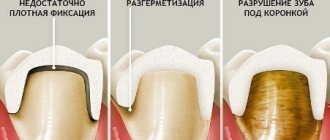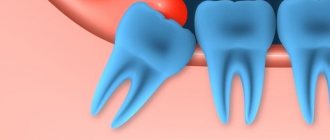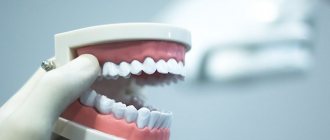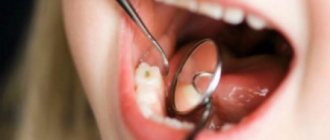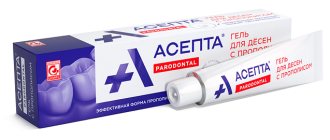Symptoms
Bitterness in the mouth can manifest itself in different ways, for example:
- after overeating and eating certain foods - indicates the reflux of bile into the esophagus and diseases of the bile ducts,
- aftertaste after taking medications means a disruption of the normal microflora, a negative effect on the liver and the destruction of beneficial bacteria,
- after sports training - speaks of liver pathologies.
Bitterness can occur at different times of the day, after physical activity and during the abuse of bad habits. Often the symptom is accompanied by nausea and vomiting, dizziness, heaviness in the side and abdominal pain, white coating on the tongue and a feeling of bloating, heartburn and belching, dry mouth. At the appointment, you need to inform the doctor in detail about each sign.
Reasons for the development of postcholecystectomy syndrome
The causes of postcholicystectomy syndrome and its development are often associated with disruption of the normal functioning of the sphincter of Oddi (orbicularis muscle). The sphincter of Oddi is a smooth muscle that is located in the lower part of the duodenum and is responsible for regulating the supply of bile and pancreatic juice to the duodenum3.
If we consider that PCES most often affects patients who have undergone surgery to remove the gallbladder4, then the mechanism of occurrence of this syndrome can be explained as follows:
- after the operation, the sphincter, which normally opens when the gallbladder is full, does not receive a signal about filling, as a result of which it is almost constantly under tension;
- due to the absence of a bladder, bile enters the duodenum in a diluted state, which increases the pressure inside the intestinal walls. In addition, bile itself has a bactericidal effect and a change in its composition can lead to intestinal infection5.
But sphincter of Oddi dysfunction may not always be caused by removal of the gallbladder. Sometimes the cause of the syndrome is advanced gastrointestinal diseases* (chronic colitis or gastritis, peptic ulcer) and chronic pancreatitis) - a disease of the pancreas, as well as errors in preoperative examination.
Which doctor treats bitterness in the mouth?
First of all, bitterness in the mouth is considered as a symptom of gastroenterological disorders, so when the first signs appear, you need to make an appointment with a gastroenterologist.
To make an appointment with a doctor, choose any method:
- call the clinic +7 (495) 103-99-55,
- order a call back,
- leave a request for an appointment using a convenient form on the website:
Often people do not pay attention to bitterness in the mouth, explaining the occurrence of the symptom with overeating, an uncomfortable position in bed and some other reasons.
IMPORTANT! Rarely does anyone think that bitterness in the mouth is a signal indicating the development of serious pathology of the liver and gastrointestinal tract.
If you have been experiencing this symptom for a long time, do not engage in self-diagnosis and self-medication - make an appointment with a specialist at the Kuntsevo Treatment and Rehabilitation Center! An experienced gastroenterologist will collect anamnesis, complaints, conduct an objective examination, and refer you for laboratory and instrumental diagnostics to understand the cause of the pathology.
SIGN UP
Treatment with juices and drinks
To quickly get rid of bitterness in the mouth, you need to switch to proper nutrition. At the same time, it is useful to consume the following juices:
| Juice | Peculiarities |
| Cucumber | It is recommended to take it when the body is intoxicated. It destroys and removes parasites, speeds up metabolism. The drink helps with poisoning, removes the unpleasant aftertaste |
| Carrot | Normalizes intestinal function, restores the microflora in it. It is also prescribed to protect the liver, as it prevents liver obesity. The juice is recommended for use for gastritis, cholecystitis, and helminthic infestations. |
| Beetroot | They can treat bile stagnation. It stabilizes blood cholesterol levels and speeds up metabolism. The drink contains a large amount of antioxidants and pectins, which cleanse the intestines and remove not only toxic substances, but also rotting food debris. Doctors advise mixing beet juice with carrot juice or simply diluting it with water. In concentrated form, the product irritates the mucous layers of the stomach |
| Potato | It contains a lot of starch, protein, fiber, vitamins and minerals, and organic acids. Due to this, it is used to normalize carbohydrate metabolism and improve intestinal function. |
| From celery and parsley | The drink not only removes bitterness in the mouth, but also restores the functioning of the gallbladder. Foods prevent fatty liver. The cocktail speeds up metabolism and removes food debris that has begun to rot from the intestines. |
| Fruit | It is recommended to mix fresh juices from orange, lemon, and apples. The result is not only a tasty, but also a healthy mix. You can prepare drinks using a juicer in a few minutes. The product must be used immediately - fresh. |
You can also prepare another healthy drink. Requires 1 large citrus fruit (for example, lemon).
Recipe:
- grind the fruit through a meat grinder;
- transfer the pulp into a glass container;
- add a glass of linden honey and 50 ml of olive oil (exclusively unrefined);
- stir with a wooden spoon.
The workpiece should be stored in a dark and cool place (a refrigerator will do). You need to take the product every time an unpleasant taste appears in your mouth. Allowed to eat 1 tsp.
Another traditional drink will also be beneficial - jelly. But it gets rid of bitterness only with certain preparation. Required:
- pour 1 tbsp. l. flax seeds with boiling water;
- wait until the product infuses and cools.
Drink half a cup twice a day (no straining required).
Treatment methods
Basically, the treatment of bitterness in the mouth comes down to taking medications. The specialist selects complex therapy based on the results of tests and instrumental examinations. The gastroenterologist identifies one of three problems:
- Liver disorders. Means are prescribed to stabilize the operation of the “filter”,
- Digestive tract dysfunction. Drugs that affect the digestive system normalize the work
- Uncontrolled bile production. Eliminated by drugs that affect the level of secretion, for example, anticholinergics.
Treatment of postcholicystectomy syndrome
Since PCES is not an independent disease, treatment of the syndrome is always determined by its causes. Not knowing how to properly treat postcholicystectomy syndrome can only aggravate the condition and increase unpleasant symptoms.
The principles of treatment for PCES include two key points:
- collection of anamnesis data - the doctor carefully studies old medical reports and records, paying close attention to preoperative diagnostics and the protocol of the operation;
- eliminating the causes of the syndrome;
- prevention and treatment of suspected complications.
Treatment is mainly based on:
- diet therapy;
- drug treatment;
- surgery (according to indications)7.
Together with comprehensive treatment, these measures can reduce the severity of symptoms of PCES8.
Why do we need to treat bitterness in the mouth?
Since an unpleasant taste in the mouth is a symptom of some pathology, a comprehensive examination is needed, without which it is impossible to establish a diagnosis. Our clinic has the latest equipment for ultrasound diagnostics of the liver and gallbladder, gastroscopy, etc., which help identify the pathological process in a short time. Our own laboratory allows you to get test results within a few hours. It is the quick examination process that attracts many Moscow residents to our clinic, as well as experienced, qualified staff ready to help every patient.
2. Reasons
Even a non-specialist in the vast majority of cases associates a bitter taste in the mouth with a pathological state of the digestive system, more precisely, the liver and/or biliary tract. Indeed, the biochemical and physiological evolution of higher mammals has led to a strange paradox. As you know, bile produced by the liver is absolutely necessary for the digestion of food, be it the simplest food or exquisite delicacies. But at the same time, bile itself has a sharp unpleasant odor and an unbearably bitter taste, so normally it goes directly into the intestines (starting from the duodenum) and does not come into contact with the taste buds of the oral cavity. However, in a number of abnormal or clearly pathological conditions and processes, bile stagnates, is thrown into the stomach and esophagus, its taste is felt in the mouth - in a word, that same bitterness appears. In some cases, this may be associated with the consumption of too fatty foods or simply with banal overeating (the bitterness disappears as the body copes with the overload), in others it serves as one of the diagnostically significant signs of a serious gastroenterological disease. Thus, the most likely groups of causes of bitterness in the mouth are:
- diseases and any congestion in the biliary (bile) system, i.e. all kinds of dyskinesias, anomalies or pathologies of the bile ducts, cholelithiasis, pathology of the gallbladder, etc.;
- liver diseases: hepatitis, oncopathology, cirrhosis, etc.;
- diseases of the gastrointestinal tract with reflux syndrome (reflux into the esophagus): gastritis, gastroduodenitis, cancer of the pancreas and other gastrointestinal organs.
However, the above reasons, with all their diversity and, indeed, the greatest probability, do not exhaust the list of possible sources of bitterness in the mouth. You should also add to it:
- allergic reactions (in particular to dental materials);
- chemical intoxication, incl. taking certain groups of medications with hepatotropic side effects;
- inflammatory processes (especially with a purulent component) in the oral cavity;
- the presence of worms;
- endocrine disorders;
- infections;
- dysbacteriosis;
- hormonal changes associated with gestation (pregnancy) or menopause;
- deficiency or imbalance of a number of microelements necessary for the body (B vitamins, zinc, etc.);
- smoking (the more cigarettes smoked per day, the more stable and intense the bitter taste in the mouth and lips), as well as withdrawal symptoms when quitting smoking, which can be controlled with a special diet and vitamin therapy;
- alcohol consumption;
- abnormal mental states (depression, chronic stress, etc.).
Visit our Gastroenterology page
Herbal therapy
Treatment of bitterness in the mouth is possible with the help of medicinal plants. The most popular recipes.
| Main Ingredient | Preparation | Use |
| Calendula |
| Divide the entire volume of medication received into 5 doses. Drink the product throughout the day |
| Burnet |
| Drink half a cup 4 times a day |
| Herbal collection |
| Rinse your mouth with the medicine 2-3 times a day during the day when a bitter taste appears in your mouth. This ancient recipe is considered one of the most effective |
| Berry picking |
| This tea is supposed to replace regular tea. |
| Birch buds |
| Rinse your mouth with the resulting liquid for 5 minutes each time an unpleasant symptom appears. |
| Immortelle |
| Take a third of a cup half an hour before meals |
| Dandelion |
| Drink a quarter cup 3 times a day before meals |
| Corn silk |
| Divide the entire amount of product into 4 servings to drink throughout the day. |
Read also: Soothing tea: the best herbs and infusions, recipes
You can also mix honey, ground raspberries and a pulp of young aloe leaves in equal proportions. Then you need to take this remedy 1 tbsp. l. three times a day. This homemade medicine can be stored in the refrigerator for no more than 2 days.
What to do?
Bitterness in the mouth after eating can be eliminated in various ways.
So, there are quite a few causes of bitterness in the mouth and it is impossible to determine the exact etiology from just one or a few symptoms. In order to get rid of this unpleasant feeling, you need to undergo a full examination, including:
- Ultrasound
- Gastroscopy
- Colonoscopy
- Laboratory diagnostics
- Computed tomography
- MRI
Choosing the right research and treatment is impossible without consulting a gastroenterologist, therapist, or neurologist.
Help before diagnosis
Even if a diagnosis has not yet been made, several measures can be taken to alleviate the condition:
- Adjust your diet, remove fatty and fried foods, eat more often and in small portions.
- Stop smoking or reduce the number of cigarettes you smoke.
- Limit alcohol consumption.
- Drink more water.
Monitor the quality of oral hygiene. You should brush your teeth twice a day, as well as use mouthwash and floss. If you have problems with your teeth, you need to visit a dentist.
Photo: goffkein/freepik.com
Important! You should not try to use folk remedies or treat yourself - this can be dangerous. If a bitter taste in your mouth appears regularly, you should consult a doctor and get recommendations for treatment.

